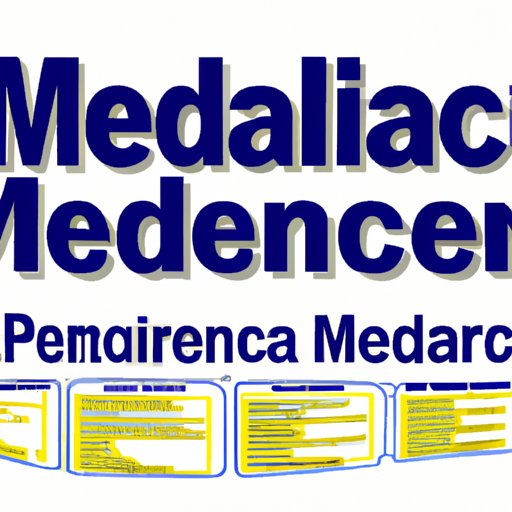Introduction
Understanding the complexities of Medicare billing can be daunting for providers. This article explores the legal obligations of Medicare providers, as well as the necessary steps for successful billing. We’ll also discuss the basics of Medicare provider billing, such as documentation requirements and eligibility for coverage, as well as navigating the complexities of Medicare reimbursement.
Exploring the Legal Obligations of Medicare Providers
Healthcare providers must adhere to a variety of laws and regulations when it comes to billing Medicare. In the United States, these laws are set forth by the Centers for Medicare & Medicaid Services (CMS). CMS is responsible for administering Medicare, the federal program that provides health insurance to people over 65 as well as those with certain disabilities or end-stage renal disease.
Providers must comply with all applicable federal and state laws, including the Health Insurance Portability and Accountability Act (HIPAA), which seeks to protect the privacy of patient information. They must also follow the Medicare Fee-For-Service (FFS) billing guidelines, which provide detailed instructions on how to submit claims and receive payments from Medicare.
Failure to comply with any of these laws and regulations can result in penalties, fines, and even criminal charges. It is important for providers to familiarize themselves with the relevant laws and regulations and ensure they are following them to the letter.

An Overview of Medicare Billing Requirements
Medicare requires providers to submit accurate and timely claims for services rendered. Claims must include all relevant information, such as patient demographic information, diagnosis codes, procedure codes, and fees charged. Providers must use the appropriate coding system and submit claims within the required time frame.
In addition, providers must obtain prior authorization from Medicare before performing certain procedures. Prior authorization is a process in which a provider requests approval from Medicare in advance of providing a service. This helps ensure that the service is medically necessary and will be covered by Medicare.
Providers must also follow up on denied claims, ensuring that they are submitted correctly and within the required timeframe. Denied claims should be appealed if necessary, and providers should work with Medicare to resolve any disputes in a timely manner.

Understanding the Basics of Medicare Provider Billing
Before billing Medicare, providers must first determine if a patient is eligible for coverage. To do this, they must collect demographic information such as name, address, date of birth, Social Security number, and insurance information. Providers must also verify that the patient is enrolled in Medicare.
Once the patient’s eligibility is determined, providers must document the services provided. This includes recording the patient’s medical history, diagnosis codes, and procedure codes. Providers must also keep detailed records of the services provided, including dates, times, and fees charged. All documentation must be completed accurately and in accordance with Medicare guidelines.

Navigating the Complexities of Medicare Reimbursement
Medicare offers several different payment models, each of which has its own rules and regulations. The most common payment models are fee-for-service (FFS) and managed care. FFS involves submitting claims for services rendered, while managed care involves providers contracting with health plans to provide services to Medicare beneficiaries.
Providers must understand the nuances of each payment model in order to maximize their reimbursements. They must consider factors such as the type of service being provided, the payment structure, and the allowable reimbursement rate. Providers must also be aware of any changes to the payment models, such as new codes or modifiers.
Conclusion
Billing Medicare can be complex and time-consuming. It is essential for providers to understand the legal obligations they must adhere to, as well as the various payment models and documentation requirements. By familiarizing themselves with the rules and regulations, providers can maximize their reimbursements and ensure compliance with all applicable laws and regulations.
(Note: Is this article not meeting your expectations? Do you have knowledge or insights to share? Unlock new opportunities and expand your reach by joining our authors team. Click Registration to join us and share your expertise with our readers.)
